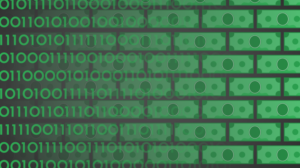Ria Rastogi’s sister Pankhuri was diagnosed with a rare brain infection in 2016 at the age of 25. She also had a stroke and was in the ICU (Intensive Care Unit) for six months. This period was full of uncertainty, fear and pain for Ria and her family.
They had no idea of what was happening inside Pankhuri’s brain. Seeing her sister in pain and suffering so much took a toll on Ria. “Unfortunately, things didn’t go well and she passed away in November 2016. The whole family went through trauma, and I was diagnosed with Post Traumatic Stress Disorder (PTSD),” says Ria.
The untimely passing of her sister and its effect on her and her family had made Ria realise the importance of mental health. She understood how important emotional, psychological, and social well-being of an individual is to ensure good mental health.
This led to the genesis of PankhTech, a YS Tech 50 startup for 2021. It focuses on braintech and mental health. Ria started the company in 2019 along with her then boyfriend and now husband Bhavya Madan, out of Delhi-NCR and Germany.
The workings
The startup’s first product is . It brings the benefits of neurofeedback at the comfort of your home with the help of EEG (electroencephalography) headband and a mobile application. An EEG test helps detect abnormalities in the electrical activity of the brain.
The team looks closely at neurofeedback as it has been scientifically proven to be a powerful tool to improve the overall health of the brain. It helps improve memory, quality of sleep, and reduces stress and anxiety.
The headband measures the electrical activity of your brain and the mobile app based on the sensor data recommends you meditation techniques to achieve your desired state. Over sessions it trains your brain on how to achieve the desired state itself.
“Our mental health impacts how we feel, think and behave each day. it also contributes to the decision-making process, how we cope with stress and how we relate to others in our lives and in our professional lives,” says Ria.
She explains we have a tendency to compare ourselves or compete against each other. This in turn causes more stress and this constant stress and burnout has led to several anxiety-related disorders.
“We have eight uniquely placed EEG sensors covering three lobes and because of that our one device can help in improving memory and auditory processing (temporal lobe), decision making and emotional/social responses (prefrontal cortex) and lastly our parietal lobe which is responsible for spatial orientation. Default mode network and balancing between right and left brain. Whereas our competitors’ devices only focus on the prefrontal cortex,” adds Bhavya.
He explains their software has an ML (machine learning) algorithm for artifact (noise) rejection and an ML model to recommend custom meditation techniques to users. The mobile application is a platform to bring wellness, mental health, and neuroscience together. It works on self-awareness and behaviour modelling by inculcating the habit of meditation for brain training.
The Team
The core team has expertise in the fields of both science and technology. “We have engineers, tech consultants and three neuroscience mentors with a combined experience of 60+ years in brain cognition, behaviour, and meditation,” says Ria.
The husband-wife duo started working on the idea in 2018. And by 2020 they partnered with companies for product manufacturing and development. The total team size stands around 15 including full time and part-time employees.
Bhavya’s previous company had a team working on EEG and he found this very fascinating. He then got himself enrolled in MSc in embedded systems with specialisation in human computer interface to be able to work on something like this. He also enrolled himself in an entrepreneurship course for nine months so that he could create a product consumer-ready but wasn’t sure of the exact application of it.
“Since both of us knew each other for nine years already, on talking about the same Ria shared if there was a device which could have helped her sister communicate better with family using her brain activity it would have been amazing and then after six months of research and ideation, Neuphony was born with helping bed ridden patients as the ultimate goal [sic],” says Bhavya.
Building the product
The biggest challenge of setting up and scaling especially in India has been being the first in this field, according to the founder couple. “Be it the market awareness or getting a full wearable electronic device manufactured in India amidst COVID-19 (has been a challenge).”
Some of the other challenges include getting the right team of “passionate engineers” to build the sub-core team. The startup has partnered with some of the “best engineers across the world” including Germany and Canada to get the product launched.
Currently, PankhTech is based out of the capital and has a subsidiary in Estonia. Both the founders graduated from Germany and are currently based there.
The product was designed in Germany itself by Bhavya and Ria, where they also hired product engineers to build the CAD (computer-aided design) model for them. The injection moulding is done in Delhi and the electronics are manufactured both in India and the UK. The assembly until now was done in-house but now will be done by a third party that has more than 50 years of experience in medical device manufacturing and assembly.
The startup has more than 25 paying customers from Europe, United States, Australia, India and Taiwan. The team also has an ongoing research collaboration with NeuroMeditation Institute (based in the US), IISc (Indian Institute of Science), and DRDO (Defence Research and Development Organisation).
“Our business collaborations (ongoing discussion and few closed) include Divergence Neuro (US) who use Neuphony to create a platform for psychiatrist and psychologists, training performance centres to use Neuphony for training athletes/performers using neurofeedback to improve their performance, Life-shots centre in Mumbai (wellness centre) to have a Neuphony corner and work as distributor in West India.”
It is also working with IFEN (Germany), Athens-Neurofeedback Centre (Greece) and Quantum Brain Research Institute (Estonia) to act as distributors as well.
The addressable health and wellness market is estimated to be around $1300 billion with a compound annual growth rate (CAGR) of six percent. The brain monitoring wearable industry is pegged at around $1 billion and a CAGR of nine percent.
Future plans
“Our customers are people who want to work on their wellness and health.It also includes brain researchers or engineers who want to build brain controlled interfaces be it VR (virtual reality) headsets, games or robotics. They can use Neuphony along with our SDK (Software Development Kit),” says Ria.
The hardware is priced at 599 Euros or Rs 35,000. The SDK would be priced at Rs 4000 per license per month for a professional model. The mobile application can also be used without the hardware as a meditation and mood tracking application based on the freemium subscription model priced at Rs 100 per month.
The injection mould itself costs more than Rs 40 Lakh. The COGS (cost of goods sold) for each product is around Rs 20,000 right now due to the small number of devices being manufactured.
“With an economy of scalability we should be able to bring down the costs. Also with time we want to manufacture our own Dry-EEG sensors which would bring down the costs further,” explains Ria.
The startup was bootstrapped until September 2021. It has raised Rs 50 lakh from friends and family, and is in the middle of raising its seed round of Rs 2.4 crore. It already has commitments worth Rs 1.1 crore from Startup oasis (CIIE, IIM Ahmedabad), Derbi foundation under Startup India seed fund and angel investors from Ahventures.
Neuphony is now in beta testing phase, with the feedback from their initial customers it would be making “small tweaks” for the commercial release.
“This current device is created keeping the needs of home psychotherapy and the research industry in mind. These industries are looking for a device which is not complicated for the users to set up and has signal quality good enough for them to work with and we address both of these needs and with the SDK subscription model.”
With the learnings from the device, and the scientific research around it, the startup plans to start working on a smaller version of the device with four sensors to reach out to the mass market. With the second device it plans to enter the B2B (business-to-business) market, where it sells them to fitness studios and meditation and wellness centres. “All this time, moving towards the vision for PankhTech, creating a device for bed ridden patients to help them communicate,” Ria signs off.

![You are currently viewing [Tech50] How after losing her young sister, this entrepreneur started a braintech startup](https://blog.digitalsevaa.com/wp-content/uploads/2021/12/Neuphony-1640094846086.jpg)

![Read more about the article [Startup Bharat] How this Jharkhand-based IIM graduate is helping grassroot level political leaders with his d](https://blog.digitalsevaa.com/wp-content/uploads/2021/02/WhatsAppImage2021-02-08at8-1612947052704-300x150.jpg)






